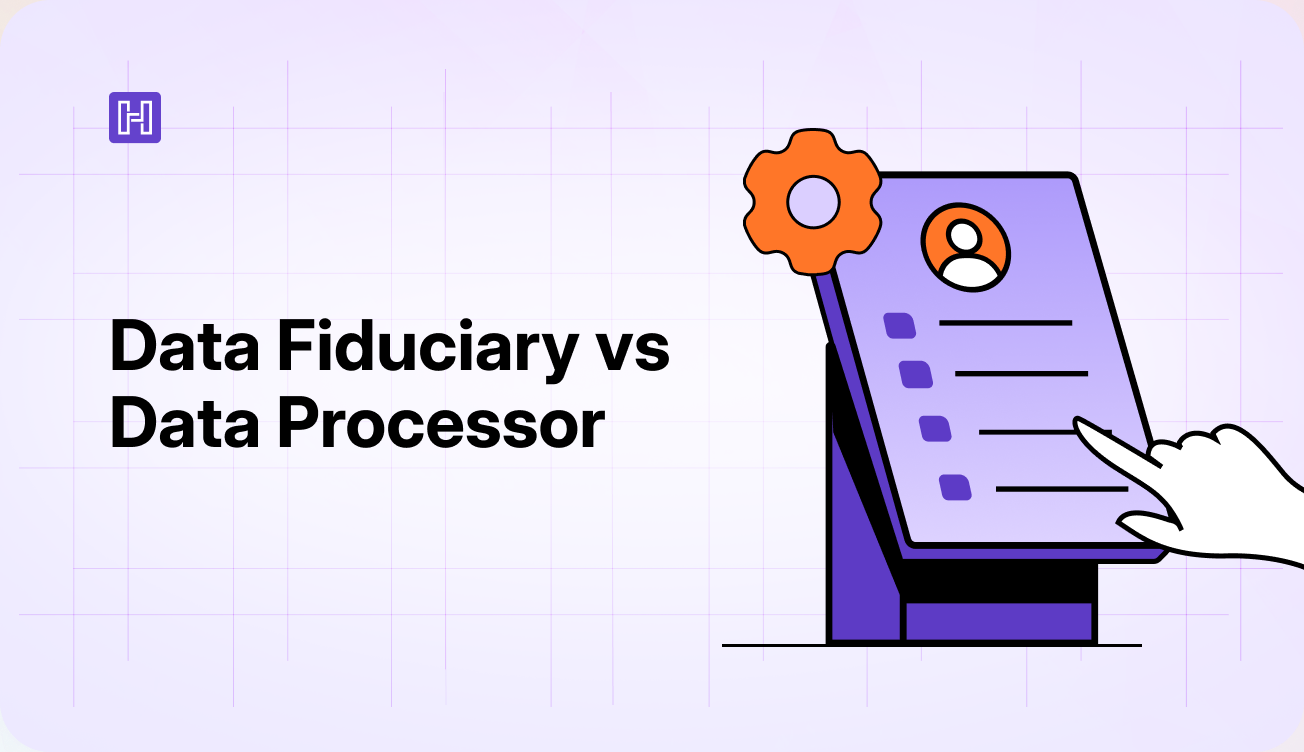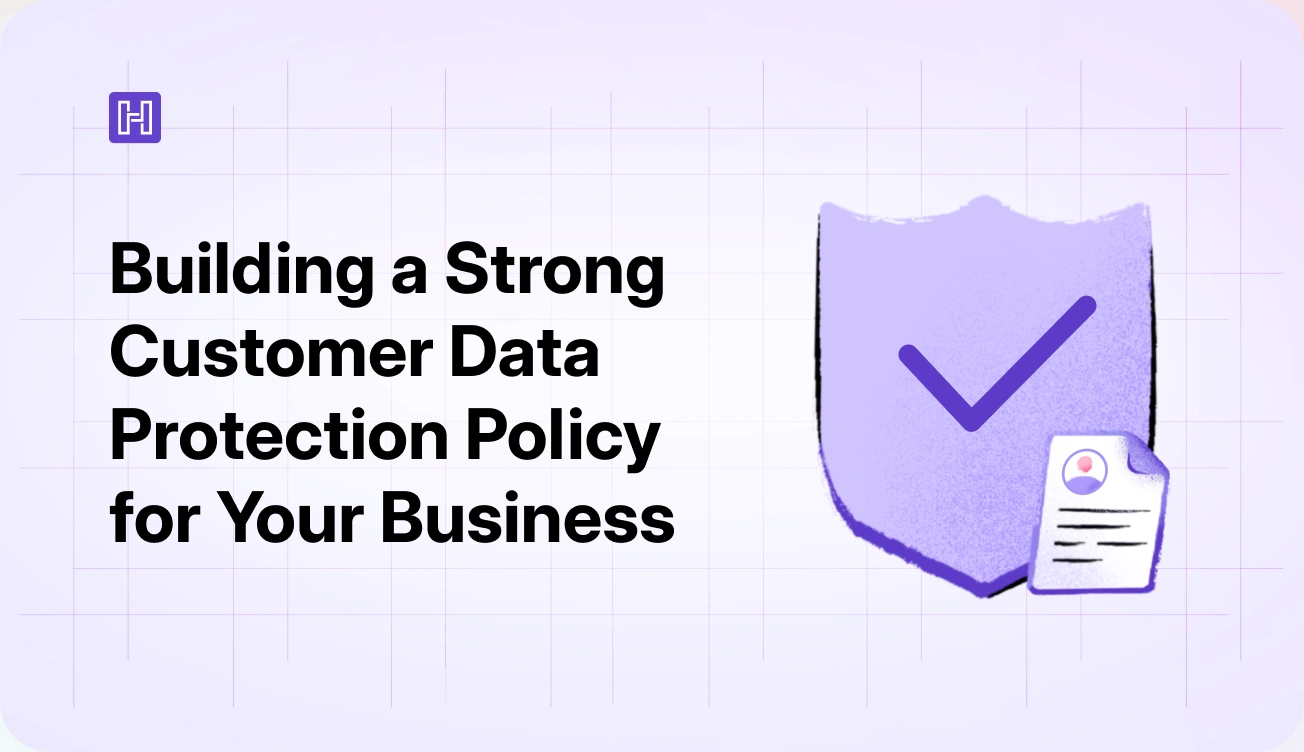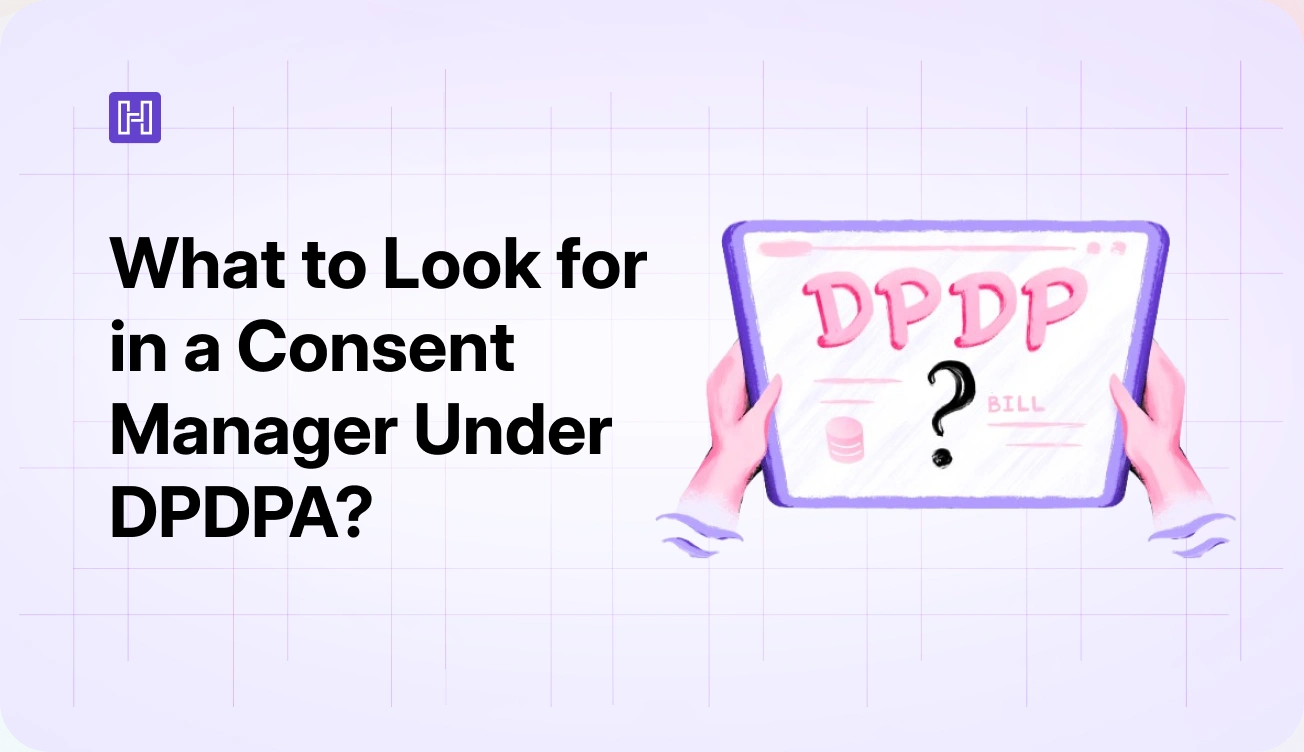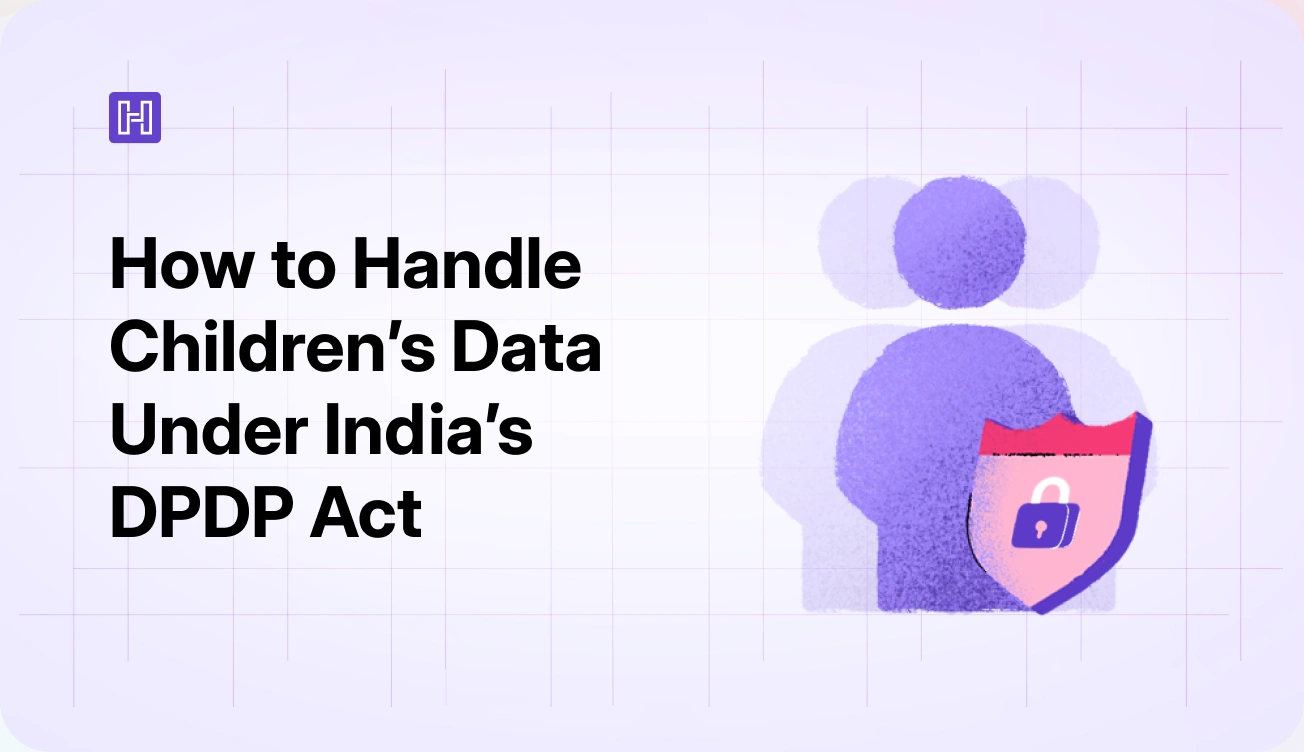In an era where every click, swipe, and tap generates a digital footprint, data privacy has become a non-negotiable requirement. For a country like India, with over 900 million internet users and a rapidly growing digital ecosystem, safeguarding personal data is no longer a luxury—it’s a necessity. From online shopping and digital payments to healthcare and education, the sheer volume of personal data being collected, processed, and stored has made privacy a pressing concern for individuals, businesses, and policymakers alike.
Enter the Digital Personal Data Protection Act (DPDPA), 2023, India’s landmark legislation aimed at regulating the use of personal data and ensuring accountability in the digital realm. This Act not only marks a significant step toward aligning India with global data protection standards but also introduces key concepts that are critical to understanding the new privacy landscape. Among these, the roles of data fiduciaries and data processors stand out as pivotal players in the data protection ecosystem.
But what exactly do these terms mean? A data fiduciary is an entity that determines the purpose and means of processing personal data—essentially, the decision-maker. Think of a social media platform deciding how your data is used for targeted advertising. On the other hand, a data processor is an entity that processes data on behalf of the fiduciary, such as a cloud service provider storing user data. While the distinction may seem straightforward, the responsibilities and liabilities of these roles under the DPDPA are anything but simple.
Data fiduciary vs data processor
It is important to understand the distinction between these terms and roles as it can be a crucial factor for compliance.
What is a data fiduciary?
Under the Digital Personal Data Protection Act (DPDPA), a data fiduciary is an entity (which could be a company, organization, or individual) that processes personal data on behalf of data principals (the individuals whose data is being processed). The key concept behind the term “fiduciary” in this context is that the data fiduciary has a legal and ethical responsibility to manage personal data in a way that respects the rights and interests of the data principals, similar to how a fiduciary has a duty of trust and care towards their clients. Let us understand the role with an example.
Key Responsibilities of a Data Fiduciary:
- Data Collection and Processing: A data fiduciary must collect only the data necessary for a specific purpose, and it must be processed in a fair and transparent manner.
- Consent: The data fiduciary must obtain explicit consent from individuals (data principals) for collecting and processing their personal data. The consent must be informed, meaning individuals must know what their data will be used for.
- Data Security: A data fiduciary is responsible for ensuring that the personal data is protected with appropriate security measures to prevent breaches, loss, or unauthorized access.
- Data Minimization: A fiduciary must ensure that only the minimum amount of personal data is collected and used for the specified purpose.
- Accountability: The fiduciary must be able to demonstrate compliance with the data protection laws. This means keeping records and being ready for audits or inspections by regulatory authorities.
- Rights of Data Principals: A data fiduciary must facilitate the exercise of data principals’ rights, such as the right to access, correct, delete, or withdraw consent for their personal data.
Example: Social media platform like Facebook
- Who is the data fiduciary? Facebook (or any other social media platform).
- What do they do? Facebook collects personal information like your name, age, interests, and location. They use this data for purposes such as providing personalized content, advertisements, and improving their platform.
- Responsibilities as a Data Fiduciary:
- Facebook must obtain your consent to collect and process your data.
- They must protect your personal data from breaches or misuse.
- They must provide you with options to delete your data or update your preferences.
- Facebook must only use your data for the purposes for which it was collected, and not for any other unintended purposes.
What is a data processor?
Under the Digital Personal Data Protection Act (DPDPA), a data processor is an entity or individual that processes personal data on behalf of a data fiduciary, but does not control the data or make decisions about how the data should be used. The data processor only processes the data in accordance with the instructions of the data fiduciary and for specific purposes that have been agreed upon in a contract.
Key Characteristics of a Data Processor:
- No Control Over Data Use: Unlike the data fiduciary, the data processor does not determine the purposes for which the data is collected or how it is processed. Instead, they follow the data fiduciary’s instructions.
- Data Processing on Behalf of Fiduciary: The processor is hired by the data fiduciary to handle tasks like storage, analytics, or other operations on personal data.
- Data Protection Responsibilities: While the processor follows the fiduciary’s instructions, they are still responsible for ensuring that they process data in a secure manner and protect it from breaches, unauthorized access, or loss.
- No Direct Relationship with Data Principals: The data processor does not have a direct relationship with the data principals (the individuals whose data is being processed). They interact only with the data fiduciary.
- Accountability to Data Fiduciary: The data processor must report to the data fiduciary about their activities and maintain compliance with the data protection laws as outlined by the fiduciary.
Example: Email Marketing Service
- Who is the data processor? An email marketing platform like Mailchimp or SendGrid.
- What do they do? The email marketing platform processes the personal data (e.g., email addresses, preferences) to send out promotional emails on behalf of the data fiduciary (e.g., an online retailer).
- Responsibilities as a Data Processor:
- The platform only processes data as instructed by the retailer (the data fiduciary).
- They must ensure the data is kept secure and cannot use it for purposes other than sending the marketing emails as instructed.
- Mailchimp must allow the retailer (data fiduciary) to access, update, or delete data as needed.
Key Differences Between Data Fiduciary and Data Processor
The key differences between a Data Fiduciary and a Data Processor under the Digital Personal Data Protection Act (DPDPA) largely revolve around their roles, responsibilities, and control over personal data. Here’s a breakdown:

Control Over Data
- Data Fiduciary:
- Control: The data fiduciary is the entity that determines the purposes and means of processing personal data. In other words, they decide why and how personal data is collected, used, or shared.
- Example: If a company collects data for marketing purposes, it is the data fiduciary because it determines what data to collect (e.g., name, email address) and how that data will be used (e.g., for sending newsletters).
- Data Processor:
- Control: The data processor does not have control over the data. They only process personal data on behalf of the data fiduciary and must follow the fiduciary’s instructions. They have no decision-making authority over the purpose or means of data processing.
- Example: A third-party email marketing service like Mailchimp is a data processor because it processes email addresses to send newsletters but follows the instructions of the data fiduciary (the company) about how the data should be used
2. Relationship with Data Principals (Individuals)
- Data Fiduciary:
- Direct Relationship: The data fiduciary has a direct relationship with the data principals (individuals whose personal data is being processed). They are the entity that collects data from individuals and must be transparent about how their data will be used.
- Example: An e-commerce website collecting customer data for purchasing goods. The customers are directly interacting with the website and are aware that their data will be used for transactions and marketing.
- Data Processor:
- No Direct Relationship: The data processor does not have a direct relationship with the data principals. They are a third party that processes data on behalf of the fiduciary and typically never interacts directly with the data subjects.
- Example: A cloud storage service like Amazon Web Services (AWS) stores data but doesn’t have any direct contact with the individuals whose data is being stored.
3. Legal Responsibility and Accountability
- Data Fiduciary:
- Primary Responsibility: The data fiduciary is ultimately responsible for ensuring that personal data is handled in compliance with data protection laws. They are accountable to the data principals and must ensure that their rights are upheld, such as the right to consent, access, and deletion.
- Example: A health app that collects and uses personal health data (e.g., heart rate, exercise patterns) is the fiduciary and must ensure the data is used lawfully and securely.
- Data Processor:
- Limited Responsibility: The data processor is responsible for ensuring the data is processed securely and as per the fiduciary’s instructions, but their legal responsibility is limited to following the contract with the fiduciary. They may be liable if they act outside the agreed-upon terms, misuse the data, or fail to protect it.
- Example: A payment gateway like Stripe must securely handle payment data but is not responsible for deciding what data to collect or how it is used. Its liability is limited to ensuring the data is processed as instructed by the retailer.
4. Role in Data Protection Compliance
- Data Fiduciary:
- Compliance and Oversight: The data fiduciary must ensure overall compliance with data protection regulations (e.g., obtaining consent, implementing privacy policies) and is responsible for handling requests from data principals (like data access, corrections, deletions).
- Example: A social media platform is the fiduciary because it collects user data (e.g., posts, personal info) and must comply with privacy laws by protecting that data, providing user rights, and informing users about data practices.
- Data Processor:
- Data Protection as per Instructions: The data processor must follow the fiduciary’s instructions to ensure the data is processed according to the law. However, they are not responsible for data protection compliance in a broader sense unless they fail to meet the fiduciary’s contractual and legal obligations.
- Example: A cloud provider like Google Cloud ensures the data it processes is secure but doesn’t decide on data protection measures—it follows the instructions given by the data fiduciary.
5. Data Usage
- Data Fiduciary:
- Purpose: The data fiduciary determines the purpose for collecting and using the data. They decide how the data will be utilized in business processes (e.g., marketing, product development).
- Example: An online retailer uses your personal details for processing orders, sending promotional offers, and improving their service. It defines the purposes and ways the data will be used.
- Data Processor:
- No Independent Purpose: The data processor can only use the data for the purposes outlined by the data fiduciary. The processor does not have independent use of the data for other purposes.
- Example: A payment processor like PayPal processes the payment information only for completing the transaction, as instructed by the retailer.
6. Contractual Obligations
- Data Fiduciary:
- Direct Contractual Relationship with Data Principals: The fiduciary has a contractual obligation to the data subjects regarding the data processing, including the terms of consent and data protection.
- Example: A company’s privacy policy is a contract between them (the data fiduciary) and the data principal, outlining how personal data will be collected, used, and protected.
- Data Processor:
- Contract with Fiduciary: The processor is bound by a contract with the data fiduciary that specifies how the data is to be processed, security measures, and compliance requirements.
- Example: A software company providing marketing tools signs a contract with a retailer (the fiduciary) to process customer data according to the retailer’s needs.
Importance of Distinguishing Between Data Fiduciary and Data Processor
It’s crucial for businesses to correctly identify their role as either a fiduciary or a data processor because these roles come with distinct legal obligations, liabilities, and compliance requirements. Misclassifying these roles can result in significant legal and financial consequences, particularly in relation to data protection laws like GDPR (General Data Protection Regulation) or DPDPA (Digital Personal Data Protection Act).
In the fiduciary role, a business acts on behalf of another party and holds a position of trust. This is most commonly seen in situations involving financial services, investment management, and trusts. Fiduciaries have a legal duty to act in the best interests of the party they represent (the “beneficiary”). This can extend to the careful management of assets, adherence to strict fiduciary duties, and ensuring no conflicts of interest.
In the context of data protection (especially under GDPR), a data processor is any entity that processes personal data on behalf of another entity, the data controller. The key here is that the data processor doesn’t determine the purpose or the means of processing data. They merely act based on the instructions of the data controller.
Legal and Compliance Implications of Misclassification
Data Privacy Risks:
Under regulations like DPDPA, the roles of data fiduciary and processor come with vastly different responsibilities. For example:
- A data fiduciary decides the purpose and means of data processing (e.g., what data is collected and why).
- A data processor can only act according to the controller’s instructions.
If a company misclassifies itself as a processor when it’s actually a fiduciary, or vice versa, it could expose itself to violations of data protection laws, leading to fines, sanctions, and reputational damage
Liabilities:
- Fiduciary Misclassification: If a business misclassifies its role as a fiduciary, it may inadvertently violate duties of care or conflict-of-interest rules. If an entity assumes a fiduciary role but doesn’t adhere to the stringent standards of care required by that role, it may face civil lawsuits or other penalties.
- Processor Misclassification: A business misclassifying itself as a processor, when it’s actually a controller, could lead to non-compliance with data protection laws. This might expose the business to direct liability for failing to implement the proper controls over data handling and security. For instance, GDPR requires that data controllers ensure processors follow data protection rules and have the necessary safeguards in place (via data processing agreements).
Contractual Issues:
When companies fail to properly classify their roles, the contracts governing those relationships may be flawed or incomplete. For instance, data controllers and processors need clear data processing agreements under GDPR. A misclassification could lead to inadequate contracts, resulting in legal disputes or enforcement actions. In fiduciary relationships, failure to establish proper terms can lead to breaches of trust or even fraud.
Regulatory Scrutiny and Fines:
Misclassification can invite scrutiny from regulatory bodies such as the Data Protection Board in India or the EU’s data protection authorities. Non-compliance with regulations specific to fiduciaries or data processors can result in substantial fines. Under DPDPA, for instance, non-compliance can lead to fines of up to INR 250 Cr.
Consumer Trust and Reputation:
Misclassifying roles also undermines consumer trust. Customers, clients, and data subjects expect companies to be transparent about how they handle personal data and how they act in a fiduciary capacity. If a business is found to be misclassifying itself, it risks damage to its reputation and loss of consumer confidence, especially in industries like finance and healthcare, where trust is critical.
Final Thoughts
The Digital Personal Data Protection Act (DPDPA) is a relatively recent addition to India’s compliance landscape, yet it plays a critical role in shaping how organizations handle personal data. Understanding the roles and responsibilities defined under the DPDPA is essential, as misclassification can result not only in hefty penalties but also in significant reputational and operational harm to your business.
If you’re uncertain about your specific obligations under the DPDPA, it’s advisable to consult a compliance expert who can guide you through the intricacies of the act. Whether you operate as a data fiduciary or a data processor, managing user consent effectively remains a key requirement.
For insights on how to streamline consent management for millions of users while ensuring compliance, feel free to reach out to us. We’re here to help you navigate these challenges with confidence.
Frequently Asked Questions
- What is the difference between a data fiduciary and a data processor?
- A data fiduciary determines the purpose and means of processing personal data, while a data processor processes data on behalf of the fiduciary.
- Can a business be both a data fiduciary and a data processor?
- Yes, a business can act as both depending on the context of data processing.
- What are the penalties for non-compliance under the DPDPA?
- Penalties can include fines up to INR 250 crore for significant violations.
- How can Indian businesses ensure compliance with the DPDPA?
- Businesses should classify their roles correctly, maintain transparency, obtain consent, and implement robust data security measures.
- What are some examples of data fiduciaries and data processors in India?
- Examples of data fiduciaries include e-commerce platforms and banks, while data processors include cloud service providers and IT vendors.





